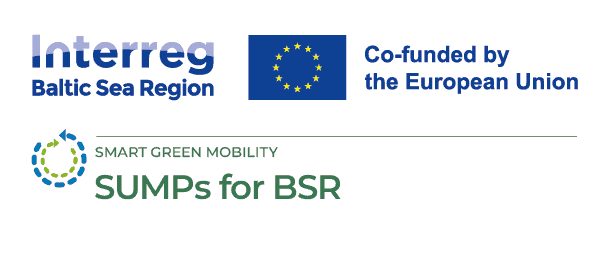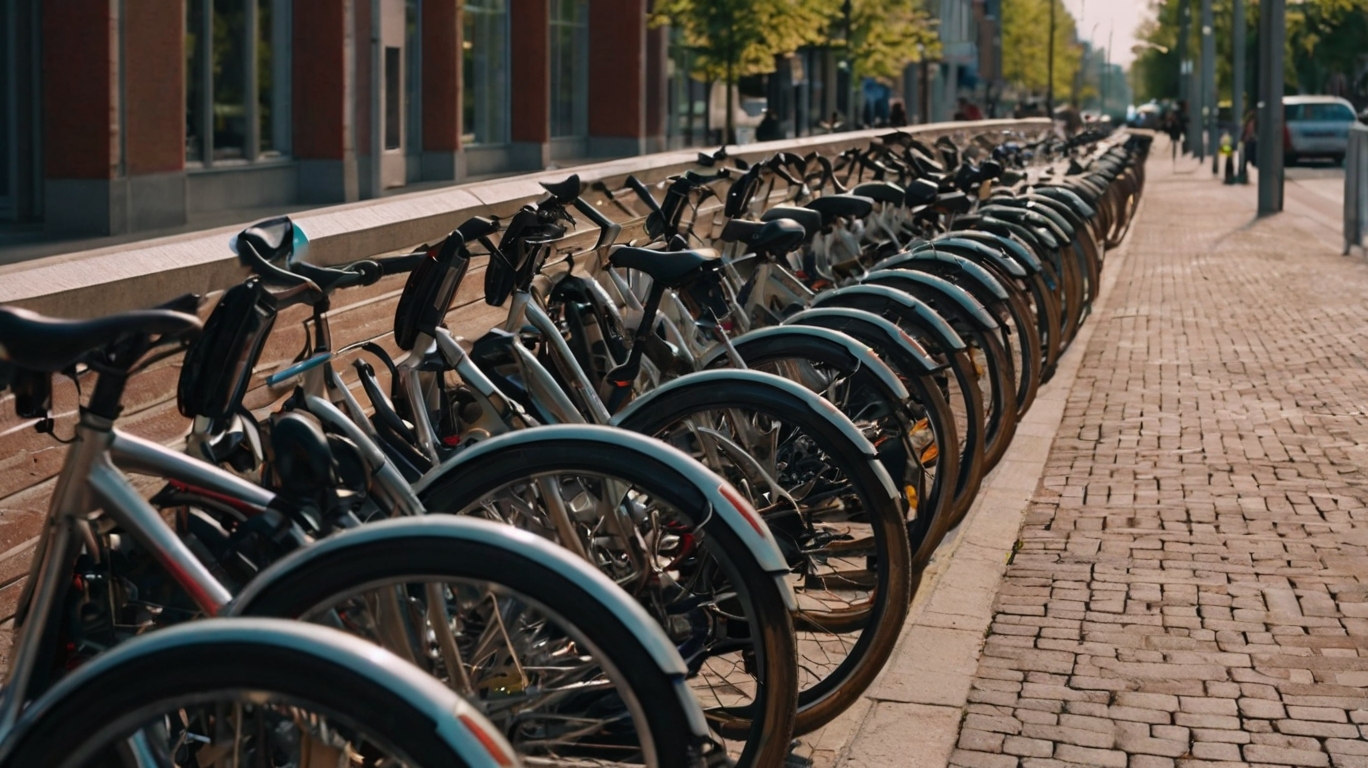
Key takeaways from Planning Innovative Pilots for Active Mobility
22 November 2024
The SUMPs for BSR project, aimed at enhancing the adoption of Sustainable Urban Mobility Plans (SUMPs) in small and medium-sized cities across the Baltic Sea Region (BSR), has finished its pilot preparation phase. It is time to give an overview of what we have learnt and what we can share with other cities from this one-year process.
To start with, the key objectives and focus areas of the project should be once again highlighted:
- Supporting BSR cities in preparing and implementing sustainable urban mobility plans, focusing on the needs of small and medium-sized cities.
- Increasing the uptake of SUMPs as strategies for sustainable mobility planning
- Developing a common framework of monitoring and evaluation for sustainable urban mobility planning
- Supporting cities in shifting their planning practices towards people-centred sustainable urban mobility planning
- Developing a model for cities to test and experiment with innovative mobility solutions, focusing on active modes
- Helping cities to use small-scale experiments as a tool for sustainable urban mobility planning and to systematically evaluate the impacts to ensure that the most promising measures are replicated.
This should result in more agile planning, being able to respond better and faster to emerging challenges in the transport environment as well as demonstrating the benefits and impacts of measures before permanent changes. To transfer the project outcomes to BSR cities and support them in the preparation and implementation of SUMPs, the project will carry out a training program that will facilitate the exchange of experiences and joint learning between cities.
So, why should a city carry out small-scale experiments? Small-scale experiments and are essential for advancing active mobility measures. They enable cities to:
- trial new initiatives on a smaller scale, allowing for adjustments based on real-world feedback without significant investment.
- get critical insights into usage patterns and preferences of mobility, helping decision-makers justify investments in active transport infrastructure.
- foster adaptability as pilots encourage a culture of experimentation, enabling cities to respond swiftly to emerging challenges in urban mobility.
By focusing on small-scale measures, cities can reduce car dependency and promote healthier lifestyles step by step. Such initiatives not only improve public spaces but also build public trust by demonstrating the tangible benefits of active mobility in a low-risk environment.
What did we do and how did we fare during the planning phase of the SUMPs for BSR project? As you have probably seen in everyday life, local governments quite often make decisions very quickly, without proper planning. To increase the quality of experiments and to really understand the impact of experiments, the first year of the project concentrated on preparing the pilots. Partner cities developed their pilot ideas while addressing existing gaps in skills and capacities related to SUMPs. The preparation process included:
- Project meetings, workshops and webinars gave ideas, supported developing of the pilots and encouraged the constant development of ideas.
- Regular peer review meetings concentrating on the details of pilots allowed partners to share progress, exchange ideas, and provide feedback on different aspects of the pilots. To provide structure for the discussions, support exchanging ideas and encourage asking questions, focus topics were chosen for every meeting, home assignments were given, and different tools were used during the meetings. These meetings facilitated the identification of problem areas of the pilots and joint problem-solving and helped to ensure that the set objectives were met.
- Based on the above-mentioned activities, city partners compiled and modified their pilot descriptions regularly. Pilot descriptions were continuously refined based on feedback from peer reviews and based on written feedback (comments on sticky notes, Miro boards and in the pilot descriptions). This process helped identify critical success factors and learning points essential for effective implementation.
- Based on the pilot descriptions, Case Studies were compiled at the end of the preparation phase to summarize the most important aspects of the pilots in an easily readable and attractive way. Case studies highlight the key learning points.
By the end of the first year, city partners admitted that without the framework and budget of the SUMPs for the BSR project, they would have engaged fewer people, used less engaging methods and simplified the data collection methods. Some of the partners mentioned that at the beginning of the project, the preparation phase seemed as something that just has to be done before they can implement their ideas, whereas the real value of the preparations was only later understood. The partners agree that the year of preparations actually went by very fast and taking the time to really think everything through proved the usefulness of thorough preparation, enabling to take the level of planning detail to the next level with the help of guided preparation activities. All project partners admit that within one year, the pilot ideas have developed remarkably. Also, there is a better understanding of what and how to measure to understand the impact and replicability of pilots. Therefore, there is a high potential to reach the above-mentioned objectives of the project.
As we move into the second year of the project, these pilots will be implemented and evaluated, contributing valuable insights to the overarching goals of sustainable urban mobility planning in the BSR region.
We aim to create scalable solutions that can be replicated across various contexts. The findings from these pilots will not only inform future initiatives but also support broader stakeholder engagement in sustainable mobility planning.
For further details on our progress and access to case studies related to our small-scale experiments and data collection pilots, please refer to our deliverable: Case Studies of small-scale experiments and data collection pilots






